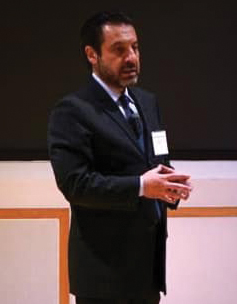
More Legal and Health Articles
Planning On Buying a Medical Or Dental Practice?

The obvious initial considerations in buying medical and dental practices that immediately come to mind are the purchase price and the location of the practice that you plan to buy. However, you should also consider some factors that may be less obvious. The trajectory of the gross revenues that were generated and collected in the recent years, the patient retention rate, the employee retention rate, and the potential future growth or lack thereof are some additional factors that you should consider as a buyer of a medical or dental practice.
Protection against past and/or potential future liabilities is a much more important consideration for buyers than sellers in transactions for acquiring medical and dental offices. In most acquisitions, sellers are fully paid at Closing and there is a lot less for them to worry about after the Closing. If the transaction is not properly structured, a buyer may realize too late that there are judgments, lawsuits, potential lawsuits, and liabilities that occurred when the seller owned the practice for which the buyer may become liable. Therefore, your transaction should be structured so that the Closing date becomes the cutoff date for all liabilities. Also, a thorough due diligence of dental and medical practices should be conducted so that any potential liabilities are flagged and dealt with prior to Closing.
Buyers should also be aware of substantial tax consequences (and how to best avoid or reduce them) that could result from the allocation of the purchase price. Negotiating the purchase price is only the beginning of negotiations, not the end. A novice buyer or an attorney that is not experienced in these types of deals could make mistakes that could result in substantial tax consequences. For example, attorneys who are not adept in handling legal matters for medical and dental practices may not be familiar with credentialing of physicians and dentists with insurance companies, which could lead to substantial losses for a buyer immediately after the Closing due to their lack of ability to accept patients from those insurance companies.
The last step in the process for buying a medical or dental practice is the Closing. It comes after all other steps such as the letter of intent, the purchase agreement, due diligence, etc., and it is when the transaction is finally consummated. It is worth mentioning that even prior to COVID our office has been handling these transactions 100% electronically.
Much like the Closings for purchasing houses, the Closings in practice transitions involve certain documents that require the parties’ signatures. These documents include a Settlement Statement, Bill of Sale, Lease Assignment (if the practice’s premises are leased), and a Professional Service Agreement for the transition period (if agreed by the parties). Depending on the terms of the Asset Purchase Agreement, the parties may be required to exchange and/or sign certain other documents based on the terms of the purchase agreement.
Other Articles You May Find of Interest...
- Can Burn Injuries Get Wet?
- What To Do If Your Health Claim Is Denied
- 4 Warning Signs You’ve Been a Victim of Medical Malpractice
- The Uses and Disastrous Side Effects of Glyphosate
- T-bone Crashes Involving Trucks: A Surefire Way to Sustain Serious Injuries
- T-bone Crashes Involving Trucks: A Surefire Way to Sustain Serious Injuries
- How to Join the Suboxone Class Action Lawsuit?

















